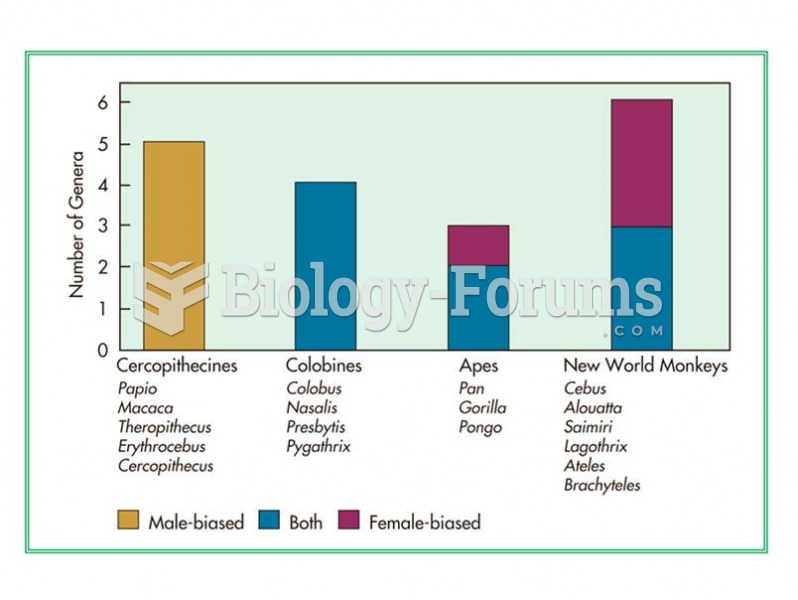|
|
|
If you could remove all of your skin, it would weigh up to 5 pounds.
When blood is deoxygenated and flowing back to the heart through the veins, it is dark reddish-blue in color. Blood in the arteries that is oxygenated and flowing out to the body is bright red. Whereas arterial blood comes out in spurts, venous blood flows.
For pediatric patients, intravenous fluids are the most commonly cited products involved in medication errors that are reported to the USP.
Opium has influenced much of the world's most popular literature. The following authors were all opium users, of varying degrees: Lewis Carroll, Charles, Dickens, Arthur Conan Doyle, and Oscar Wilde.
On average, someone in the United States has a stroke about every 40 seconds. This is about 795,000 people per year.







